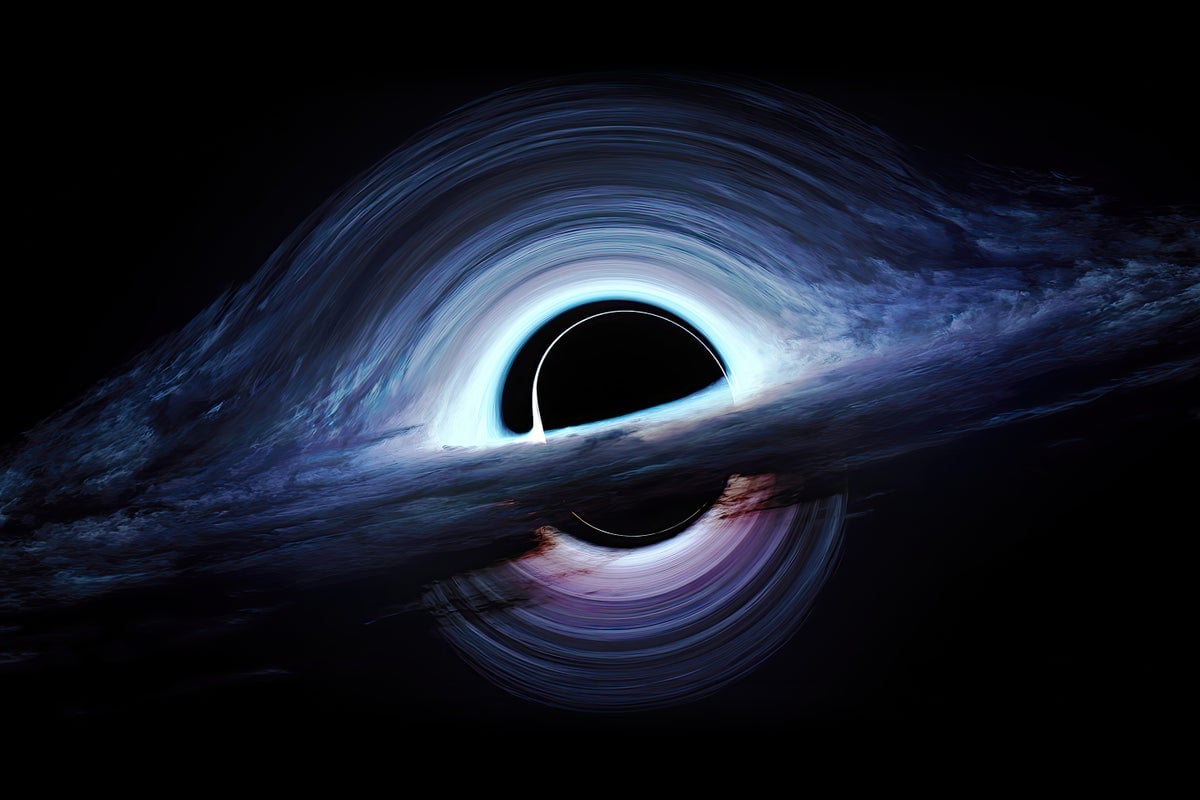- cross-posted to:
- [email protected]
- [email protected]
- cross-posted to:
- [email protected]
- [email protected]
The universe’s hidden mass may be made of black holes, which could wobble the planets of the solar system when they pass by
Black holes the size of an atom that contain the mass of an asteroid may fly through the inner solar system about once a decade, scientists say. Theoretically created just after the big bang, these examples of so-called primordial black holes could explain the missing dark matter thought to dominate our universe. And if they sneak by the moon or Mars, scientists should be able to detect them, a new study shows.
…
If primordial black holes are responsible for dark matter, they probably zip through the solar system about every 10 years, a new study found. If one of these black holes comes near a planet or large moon, it should push the body off course enough to be measurable by current instruments. “As it passes by, the planet starts to wobble,” says Sarah R. Geller, a theoretical physicist now at the University of California, Santa Cruz, and co-author of the study, which was published on September 17 in Physical Review D.* “The wobble will grow over a few years but eventually it will damp out and go back to zero.”



What if this is what causes strokes? Black holes yeeting through your head and snatching a few grams of grey matter, causing a bleed and stroke.
We’re estimating once a decade. Not thousands a day.
Could the estimates be wildly off? Yes. But that’s still pretty wild conjecture lol.
We already know what causes strokes.
They compute the odds of a human ever getting hit by a PBH in the lifetime of the solar system, and it’s… considerably less than the odds of getting a stroke.
Everyone who ever had a stroke has just been extremely unlucky
New fear unlocked.